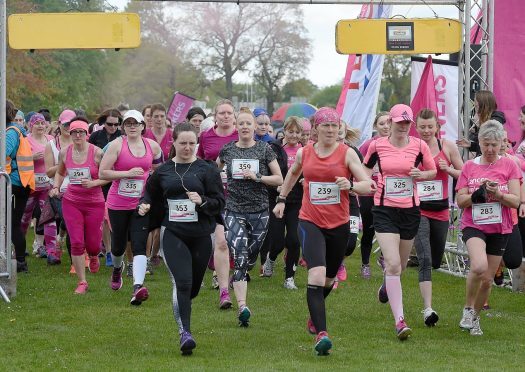One in three participants in a leading cancer charity’s annual race events never hand over their sponsorship money, it has emerged.
Hundreds of people in the north and north-east alone take part in Cancer Research’s famous Race for Life events every year, raising hundreds of thousands of pounds.
But money pledged by some entrants does not materialise, according to the charity.
Cancer Research attracts huge numbers of pink-clad women runners, joggers and walkers to its Race for Life events in the north.
An impressive £110,000 was pledged for last Sunday’s Inverness Race for Life where about 1,000 entrants paced the 10k circuit at the city’s Bught Park.
Similarly, almost 4,000 women took part in the Aberdeen event last year, raising close to £300,000.
Each entrant pays a small fee to participate.
They add it to the amounts that they have been pledged by sponsors to boost the national kitty for cancer research.
Several appeals were made at the Inverness event by organisers keen to ensure all pledged donations are duly submitted.
Speaking yesterday, Cancer Research UK national event manager for Race for Life in Scotland, Susan Johnstone, confirmed it was a mystery they were keen to solve.
She said: “We’re incredibly grateful to the thousands of women who take part in Race for Life and their supporters who help raise millions of pounds for life-saving research.
“About a third of our participants don’t return their sponsorship money. There could be a range of reasons for this.
“Some may not realise that the entry fee covers the costs of organising the event, but we need sponsorship to pay for research.
“Others may be busy over the summer months and simply forget to collect it.
“Whatever the reason, we’d like to send a gentle reminder to everyone to collect their sponsorship and then pay it in online, over the phone, by cheque or at a Cancer Research UK shop.”
The lives of many entrants have been touched by cancer through personal experience or loss of a relative or friend.
The donations from Race for Life events raise millions of pounds each year to aid research into 200 types of cancer.
The money is used for a vast array of purposes including the purchase of essential chemicals and scientific and protective laboratory equipment to cancer trials.
